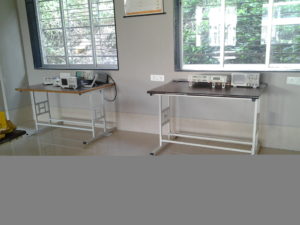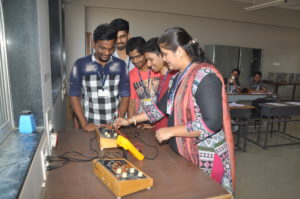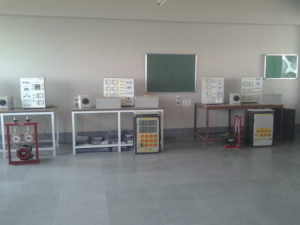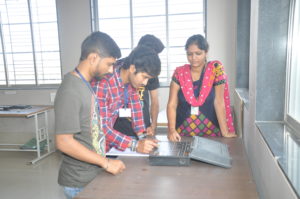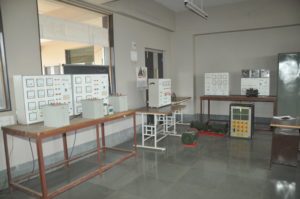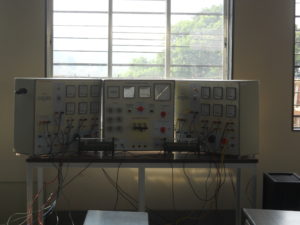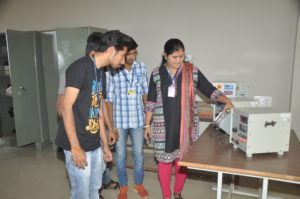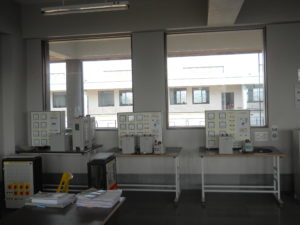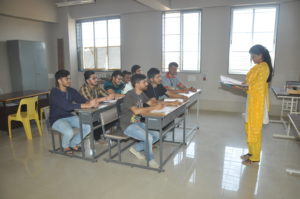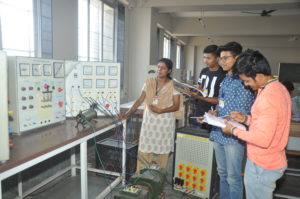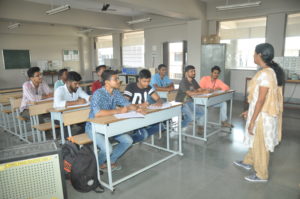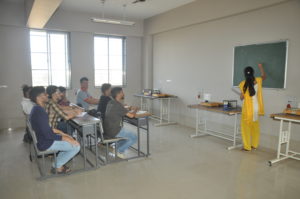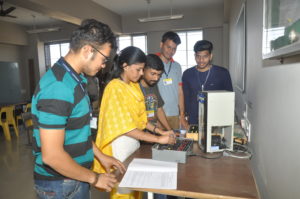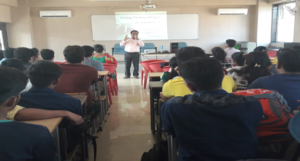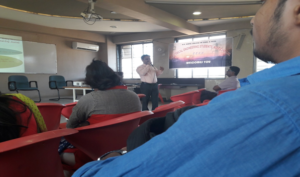DEGREE IN ELECTRICAL ENGINEERING
VISION
To develop electrical engineers with technical skills to raise employ-ability in industry and interactive skills so as to become compatible professional in rural areas of Mumbai.
MISSION
- To provide quality education in electrical engineering for meeting current and future need of industry by timely upgraded curriculum for social and economical development of the nation.
- To create self-disciplined, determined and morally strong engineers.
- To encourage all the faculty members and students to contribute in continuous improvement of performance and quality of education.
PROGRAM EDUCATIONAL OBJECTIVES
- PEO1 – Fulfill the needs of society in solving technical problems using engineering principles, tools and practices, in an ethical and responsible manner
- PEO2 – pursue higher education
- PEO3 – excel in professional career by adapting emerging technologies.
- PEO4 – Achieve success in graduate programs in electrical engineering or a related field.
PROGRAM OUTCOMES
- Engineering knowledge:- Apply the knowledge of mathematics, science, engineering fundamentals of electrical and an engineering specialization to solve real life problems.
- Problem analysis:- Identify, formulate, review research literature, and analyze complex engineering problems reaching substantiated conclusions using first principles of mathematics, natural sciences, and engineering sciences.
- Design/development of solutions:- Design solutions for complex engineering problems and design system components or processes that meet the specified needs with appropriate consideration for the public health and safety, and the cultural, societal, and environmental considerations.
- Conduct investigations of complex problems:- Use research-based knowledge and research methods including design of experiments, analysis and interpretation of data.
- The engineer and society:- Apply reasoning informed by the contextual knowledge to assess societal, health, safety, legal and cultural issues and the consequent responsibilities relevant to the professional engineering practice.
- Environment and sustainability:- Understand the impact of the professional engineering solutions in societal and environmental contexts, and demonstrate the knowledge of, and need for sustainable development.
- Modern tool usage:- Create, select, and apply appropriate techniques, resources, and modern engineering and IT tools including prediction and modeling to complex engineering activities with an understanding of the limitations.
- Ethics:- Apply ethical principles and commit to professional ethics and responsibilities and norms of the engineering practice
- Individual and team work:- Function effectively as an individual, and as a member or leader in diverse teams, and in multidisciplinary settings.
- Communication:- Communicate effectively on complex engineering activities with the engineering community and with society at large, such as, being able to comprehend and write effective reports and design documentation, make effective presentations, and give and receive clear instructions.
- Project management and finance:- Demonstrate knowledge and understanding of the engineering and management principles and apply these to one’s own work, as a member and leader in a team, to manage projects and in multidisciplinary environments.
- Life-long learning:- Recognize the need for, and have the preparation and ability to engage in independent and life-long learning in the broadest context of technological change.
PROGRAM SPECIFIC OUTCOMES
- Understand the principles and construction of electrical machines and determine their performance through testing.
- Analyze and design modern electrical drive systems and modern lighting systems.
- Specify, architect, design and analyze power systems that efficiently generate, transmit, distribute and utilize electrical power.
ABOUT US
Electrical engineering, one of the core courses of engineering discipline deals with the study of design, development, and maintenance of electrical systems and their components, ensuring quality, safety, reliability, and sustainability. The course focuses on the manufacturing of electrical equipment used in a number of sectors including construction and building and the production and distribution of power. Electrical engineering is rapidly growing not only within core areas such as wireless communications and mobile technologies but also in other cross-functioning areas including nanotechnology and biomedical engineering. The world is moving towards the renewable source of energy including solar and wind power, and multi-national corporations are searching for power generation experts.
Electrical students are taught to design, analyze, implement and operate electrical and electronics systems efficiently, thus opening the doors to new challenges. In this aspect the students are given in-depth knowledge in Machines, Power Systems, Control System, Signal Processing Drives, Power Electronics Microprocessors and Switched Mode Power Supplies. To impart this we have well qualified experienced and dedicated staff in the department.
Mumbai University has included in its curriculum subjects like Design and Estimation of Electrical Systems, High Voltage DC Transmission System, Analysis and Design of Switched Mode Converters, Illumination Engineering, Project Management, Computer Application in Power System, Analog and Digital Circuits and Microprocessors which are the fastest developing fields. Project Management a subject in the final year, helps the students analyze and implement Tools and Techniques in handling projects efficiently and to become a good Project Managers.
| Sr. No. | Name of Laboratory | Practical’s related Subject | Class Branch – Sem | Name of Instruments/ Experiment Setup | Lab Pics |
| 1 | BASIC ELECTRICAL ENGINEERING LAB | Basic Electrical Engg. | FE All Branches – I | Superposition Kit, RLC Resonance Kit |
|
| 2 | MEASUREMENT LAB | Electrical & Electronic Measurement | SE Electrical – III | Lvdt Kit, Dc Potentiometer, Maxwell, Anderson, Hays Bridge |
|
| 3 | PROTECTION AND SWITCH-GEAR LAB | Protection & Switch-Gear Engg. | TE Electrical – V | Inverse Time Relay, Motor Protection Relay, Inverse Time Over Current Relay, Inverse Time Earth Fault Relay Ac Under Voltage Relay, Ac Over Voltage Relay | |
| 4 | POWER ELECTRONICS LAB | Power Electronics | TE Electrical – V | Commutation Circuit Of Scr, Triggering Circuit, Chara. Of Scr Driac N Triac,Series Inverter,Parallel And Bedford Inverter,Step Up And Step Down Chopper |
|
| 5 | ELECTRICAL NETWORK LAB | Electrical Network | SE Electrical – IV | Superposition, Reciprocity Millimum Mptt,Two Port N/Charging And Discharging |
|
| 6 | ELECTRICAL MACHINE | Electrical Machine – I | SE Electrical | Dc Shunt Motor, Dc Series Motor, Single Phase Transformer |
|
| Electrical Machine – II | TE Electrical – V | OC/SC Three Phase Transformer Panel , Scott & V Connection On Transformer Panel ,Test On Three Phase Sqim, Three Phase Slipring Im | |||
| Electrical Machine – III | TE Electrical – VI | Three Phase Alternator,Synchronous Panel | |||
| 7 | CONTROL SYSTEM LAB | Control System | BE Electrical – VI | Dc Position Control, AC Position Control, Ac Servo Motor, Dc Servo Motor, Potentiometric Error, PID Controller |
|
Electrical Engineering Students Association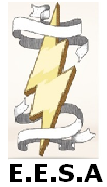
Events Organised By EESA
| Sr. No. | Domain | Name of Domain Expert/ Guest Lecturer |
| 1. | Technical paper writing skill | Prof. Ravindra Duche |
Photographs
| ||
